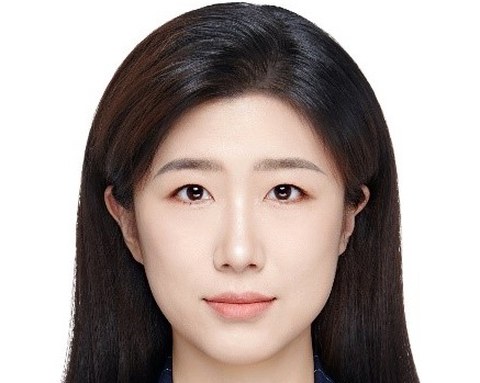Nov 26, 2024
Dr. Peiyun Li joined Institute of Applied Physics as a Maria Reiche Fellow
Dr. Peiyun Li, a top researcher from Peking University, has joined the Institute of Applied Physics at TU Dresden as a Maria Reiche Fellow. The Chinese material scientist is recognized for pioneering work in n-type organic electrochemical transistor materials for bioelectronics.
Bioelectronics is a research field that combines biology and electronics. Bioelectronic devices are vital for health surveillance, diagnosing illnesses, and therapeutic interventions. Organic electrochemical transistor (OECT) is a promising candidate for bioelectronics because of its flexibility, large-area processability, high signal amplification capabilities, and aqueous working environment. Addressing the low-performance issues of n-type OECT materials and unclear structure-property relationships, Dr. Li’s research proposes a series of strategies to achieve high-performance devices.
One notable result of Dr. Li’s research is hydrogels, which are known for their tissue-like softness and high-water content, and widely applied in issue engineering, medical dressings, and biosensors. However, compared with traditional silicon-based electronic devices, hydrogel electronic devices cannot achieve functions such as switching, signal amplification due to the lack of semiconductor properties.
To address this limitation, Dr. Li and her colleagues developed single- and multiple-network hydrogels based on a water-soluble n-type semiconducting polymer. These hydrogels show excellent electron mobilities and high on/off ratios, enabling the fabrication of low-consumption and high-gain complementary logic circuits. These advanced hydrogels are well-suited for biological interfaced transistors, with the potential to receive sensitive biosignal and amplify signals for medical diagnostics or other bioelectronic applications. The development of n-type semiconducting hydrogels by Dr. Li and her colleagues establishes a foundation for on-site computing at the bioelectronic-tissue interface, pushing the next-generation hydrogel bioelectronics.
Future Directions at TU Dresden
“In future research, I plan to focus on OECT neuromorphic computing,” says Dr. Li. “OECT represents a promising artificial neural device because its device structure and working principle are very similar to the synapses in neurons. I hope to leverage my research background and the platform of TU Dresden to achieve breakthroughs in multimodal neuromorphic computing.”
About Dr. Peiyun Li
Dr. Li completed her undergraduate studies in functional materials at Huazhong University of Science and Technology in Wuhan, China. She then pursued her Ph.D. in Materialogy at Peking University under the supervision of Professor Ting Lei, receiving honours such as the Presidential Scholarship and the Outstanding Graduation Award of Peking University in 2024. Dr. Li is now continuing her postdoctoral research at TU Dresden with the support of the Maria Reiche Postdoctoral Fellowships.
About Maria Reiche Postdoctoral Fellowships
The Maria Postdoctoral Fellowships support early-career female researchers with a two-year full-time scholarship, enabling them to build their scientific profiles and prepare independent research proposals for third-party funding. This programme aims to increase female representation in academia and assist candidates on their path to a professorship.
More information: https://tu-dresden.de/ga/finanzierung/foerderangebote-ga/postdoc-foerderung/mr-postdocs?set_language=en

